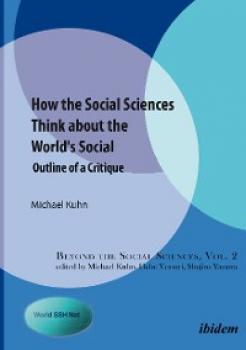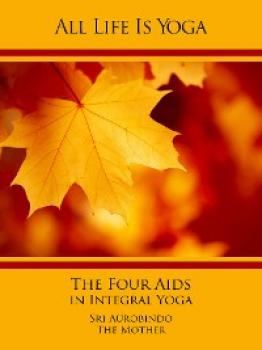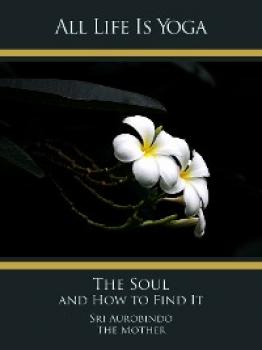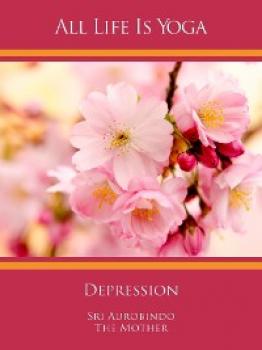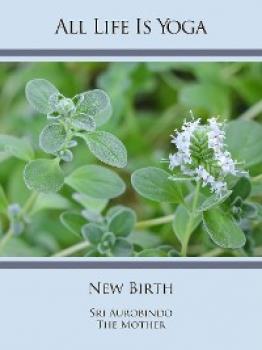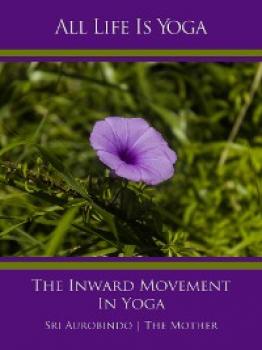ТОП просматриваемых книг сайта:
Автор
Все книги издательства АвторАннотация
At the beginning of the new millennium, the social sciences discover an epochal “turn” making it necessary to revolutionize their theory-building: As a response to what they call the globalization of the social, they find the need to globalize their theorizing as well.
It is odd to discover after two centuries of colonialism and imperialism, after two world wars and several economic world crises that there is a world beyond the national socials; it is even more strange that the social sciences globalize their theorizing by comparing theories about nationally confined socials and by creating all sorts of, preferably, “local theories”, just as if any national social was a secluded social biotope. Discussing how to globalize the social sciences, they argue that globalizing social science theorizing means finding a way of theorizing that must, above all, be liberated from “scientism” in order to allow a “provincialization” of thinking. Not surprisingly, the globalizing social sciences also rediscover mythological and moral thinking as a means for a “true scientific universalism”.
Michael Kuhn’s new book presents many thought-provoking arguments on the oddities of the globalizing social sciences and on how these oddities are not accidents, but a consequence of the nature of how the social sciences theorize about the social.
It is odd to discover after two centuries of colonialism and imperialism, after two world wars and several economic world crises that there is a world beyond the national socials; it is even more strange that the social sciences globalize their theorizing by comparing theories about nationally confined socials and by creating all sorts of, preferably, “local theories”, just as if any national social was a secluded social biotope. Discussing how to globalize the social sciences, they argue that globalizing social science theorizing means finding a way of theorizing that must, above all, be liberated from “scientism” in order to allow a “provincialization” of thinking. Not surprisingly, the globalizing social sciences also rediscover mythological and moral thinking as a means for a “true scientific universalism”.
Michael Kuhn’s new book presents many thought-provoking arguments on the oddities of the globalizing social sciences and on how these oddities are not accidents, but a consequence of the nature of how the social sciences theorize about the social.
Аннотация
In the past, the European social sciences labelled and discredited knowledge that did not follow the definition for scientific knowledge as applied by the European social sciences as an alternative concept of knowledge, as “indigenous” knowledge. Perception has changed with time: Not only has indigenous knowledge become an entrance ticket to the European social science world, but the indigenization of European theories is seen by some as the contribution of “peripheral” social sciences to join the theories of the “centers”.
This book offers contributions to the discourses about alternative concepts of knowledge, inviting the reader to decide if they are alternative, indigenous, or European types of knowledge. However, in order to make this decision, the reader must know what the nature of the European concepts of science and of scientific knowledge is; this might be a motivation to read a book that presents thoughts claiming to be alternative concepts of knowledge, alternative to the European concept of science.
This book offers contributions to the discourses about alternative concepts of knowledge, inviting the reader to decide if they are alternative, indigenous, or European types of knowledge. However, in order to make this decision, the reader must know what the nature of the European concepts of science and of scientific knowledge is; this might be a motivation to read a book that presents thoughts claiming to be alternative concepts of knowledge, alternative to the European concept of science.
Аннотация
Nodearket med originale noder til børnesang «Der Var En Gammel Gubbe» for klaver. Skrevet for mere øvede i es-dur. // This music book contains the original sheet music of the Children's Song «Der Var En Gammel Gubbe» for Piano. Medium difficulty in Eb major.
Аннотация
The present training units can support you in improving your team's handball-specific fitness, especially in terms of speed, speed endurance, and strength.
The strength training units focus on improving core stability with musculoskeletal and dynamic stabilization exercises. Stability plays an important role in handball, as it is crucial to a high physical performance and can prevent injuries.
Considering speed and speed strength, reflexive jumping power, short sprints, and speed endurance are especially important. These skills are essential for succeeding in handball.
The training units combine course strength trainings with short contests and handball-specific exercises, thus showing the possibilities for creating a diverse fitness training that is also fun for the team.
The present training units are designed for older youth teams and adult teams. Hence, certain physical requirements must be met. The exercises can also be used in the training of younger teams, however, you have to make sure that the difficulty level is appropriate for the younger players.
This book contains the following training units: TU 1 – Series of shots with reflexive jumping power training This unit focuses on training the jumping power with handball-specific shooting exercises. After warm-up, a coordination run exercise, and a sprint contest, ball familiarization includes jumping and additional exercises with the ball. After the goalkeeper warm-up shooting, reaction time and jumping power are trained in two individual shooting exercises. A closing game completes this training unit. TU 2 – Intensive speed strength/speed strength endurance training with various running directions This athletics unit focuses on improving speed strength endurance. After warm-up and a short game, five athletics exercises train the various groups of thigh muscles by moving forwards, backwards, and to the side. This training unit is very intense and can thus be incorporated in preparation periods or season breaks.
TU 3 – Handball-specific endurance training with fast break movements This unit trains handball-specific endurance focusing on running and jumping exercises. After warm-up including a coordination run exercise, ball familiarization includes a passing and running course across the whole court. Goalkeeper warm-up shooting includes a series of 4 shots combined with a subsequent 2-on-2 fast break. The following endurance unit requires jumping exercises and playing 2-on-2 across the whole court alternately. This intense unit ends with a team exercise and a team fast break contest.
TU 4 – Intense athletics training for arms and legs This intense training unit focuses on athletics training. After warm-up including a game with high running intensity and a coordination run exercise, an athletics course is done. An additional jumping and strength exercise for the arms and a running exercise complete this training unit.
TU 5 – Handball-specific endurance training in game-like situations This training unit contains a playful, handball-specific endurance unit. Each exercise is characterized by a high running intensity and is directly related to the handball game. After warm-up and ball familiarization as well as goalkeeper warm-up shooting, an endurance course is done. In this, two players have to accomplish a task as opponents. Which team is the first to score eight times? A sprint contest completes this intense training unit.
The strength training units focus on improving core stability with musculoskeletal and dynamic stabilization exercises. Stability plays an important role in handball, as it is crucial to a high physical performance and can prevent injuries.
Considering speed and speed strength, reflexive jumping power, short sprints, and speed endurance are especially important. These skills are essential for succeeding in handball.
The training units combine course strength trainings with short contests and handball-specific exercises, thus showing the possibilities for creating a diverse fitness training that is also fun for the team.
The present training units are designed for older youth teams and adult teams. Hence, certain physical requirements must be met. The exercises can also be used in the training of younger teams, however, you have to make sure that the difficulty level is appropriate for the younger players.
This book contains the following training units: TU 1 – Series of shots with reflexive jumping power training This unit focuses on training the jumping power with handball-specific shooting exercises. After warm-up, a coordination run exercise, and a sprint contest, ball familiarization includes jumping and additional exercises with the ball. After the goalkeeper warm-up shooting, reaction time and jumping power are trained in two individual shooting exercises. A closing game completes this training unit. TU 2 – Intensive speed strength/speed strength endurance training with various running directions This athletics unit focuses on improving speed strength endurance. After warm-up and a short game, five athletics exercises train the various groups of thigh muscles by moving forwards, backwards, and to the side. This training unit is very intense and can thus be incorporated in preparation periods or season breaks.
TU 3 – Handball-specific endurance training with fast break movements This unit trains handball-specific endurance focusing on running and jumping exercises. After warm-up including a coordination run exercise, ball familiarization includes a passing and running course across the whole court. Goalkeeper warm-up shooting includes a series of 4 shots combined with a subsequent 2-on-2 fast break. The following endurance unit requires jumping exercises and playing 2-on-2 across the whole court alternately. This intense unit ends with a team exercise and a team fast break contest.
TU 4 – Intense athletics training for arms and legs This intense training unit focuses on athletics training. After warm-up including a game with high running intensity and a coordination run exercise, an athletics course is done. An additional jumping and strength exercise for the arms and a running exercise complete this training unit.
TU 5 – Handball-specific endurance training in game-like situations This training unit contains a playful, handball-specific endurance unit. Each exercise is characterized by a high running intensity and is directly related to the handball game. After warm-up and ball familiarization as well as goalkeeper warm-up shooting, an endurance course is done. In this, two players have to accomplish a task as opponents. Which team is the first to score eight times? A sprint contest completes this intense training unit.
Аннотация
Selections from the works of Sri Aurobindo and the Mother.
"…the individuals who will most help the future of humanity in the new age will be those who will recognise a spiritual evolution as the destiny and therefore the great need of the human being. Even as the animal man has been largely converted into a mentalised and at the top a highly mentalised humanity, so too now or in the future an evolution or conversion – it does not greatly matter which figure we use or what theory we adopt to support it – of the present type of humanity into a spiritualised humanity is the need of the race and surely the intention of Nature; that evolution or conversion will be their ideal and endeavour. They will be comparatively indifferent to particular belief and form and leave men to resort to the beliefs and forms to which they are naturally drawn. They will only hold as essential the faith in this spiritual conversion, the attempt to live it out and whatever knowledge – the form of opinion into which it is thrown does not so much matter – can be converted into this living. They will especially not make the mistake of thinking that this change can be effected by machinery and outward institutions; they will know and never forget that it has to be lived out by each man inwardly or it can never be made a reality for the kind. They will adopt in its heart of meaning the inward view of the East which bids man seek the secret of his destiny and salvation within; but also they will accept, though with a different turn given to it, the importance which the West rightly attaches to life and to the making the best we know and can attain the general rule of all life." – Sri Aurobindo
"…the individuals who will most help the future of humanity in the new age will be those who will recognise a spiritual evolution as the destiny and therefore the great need of the human being. Even as the animal man has been largely converted into a mentalised and at the top a highly mentalised humanity, so too now or in the future an evolution or conversion – it does not greatly matter which figure we use or what theory we adopt to support it – of the present type of humanity into a spiritualised humanity is the need of the race and surely the intention of Nature; that evolution or conversion will be their ideal and endeavour. They will be comparatively indifferent to particular belief and form and leave men to resort to the beliefs and forms to which they are naturally drawn. They will only hold as essential the faith in this spiritual conversion, the attempt to live it out and whatever knowledge – the form of opinion into which it is thrown does not so much matter – can be converted into this living. They will especially not make the mistake of thinking that this change can be effected by machinery and outward institutions; they will know and never forget that it has to be lived out by each man inwardly or it can never be made a reality for the kind. They will adopt in its heart of meaning the inward view of the East which bids man seek the secret of his destiny and salvation within; but also they will accept, though with a different turn given to it, the importance which the West rightly attaches to life and to the making the best we know and can attain the general rule of all life." – Sri Aurobindo
Аннотация
Selections from the works of Sri Aurobindo and the Mother.
"The Yoga-siddhi, the perfection that comes from the practice of Yoga, can be best attained by the combined working of four great instruments. There is, first, the knowledge of the truths, principles, powers and processes that govern the realisation – śāstra. Next comes a patient and persistent action on the lines laid down by this knowledge, the force of our personal effort – utsāha. There intervenes, third, uplifting our knowledge and effort into the domain of spiritual experience, the direct suggestion, example and influence of the Teacher – guru. Last comes the instrumentality of Time – kāla; for in all things there is a cycle of their action and a period of the divine movement." – Sri Aurobindo
"The Yoga-siddhi, the perfection that comes from the practice of Yoga, can be best attained by the combined working of four great instruments. There is, first, the knowledge of the truths, principles, powers and processes that govern the realisation – śāstra. Next comes a patient and persistent action on the lines laid down by this knowledge, the force of our personal effort – utsāha. There intervenes, third, uplifting our knowledge and effort into the domain of spiritual experience, the direct suggestion, example and influence of the Teacher – guru. Last comes the instrumentality of Time – kāla; for in all things there is a cycle of their action and a period of the divine movement." – Sri Aurobindo
Аннотация
"The soul, the psychic being, is in direct touch with the divine Truth, but it is hidden in man by the mind, the vital being and the physical nature (manas, prana, anna of the Taittiriya Upanishad). One may practise Yoga and get illuminations in the mind and the reason; one may conquer power and luxuriate in all kinds of experiences in the vital; one may establish even surprising physical siddhis; but if the true soul-power behind does not manifest, if the psychic nature does not come into the front, nothing genuine has been done. In this Yoga, the psychic being is that which opens the rest of the nature to the true supramental light and finally to the supreme Ananda." – Sri Aurobindo
"In truth, the only thing that is truly tragic is not to become conscious of one’s soul, the psychic being, and not to be entirely guided by it in one’s life. To die before having found one’s soul and lived according to its law, that is the true failure." – The Mother
"In truth, the only thing that is truly tragic is not to become conscious of one’s soul, the psychic being, and not to be entirely guided by it in one’s life. To die before having found one’s soul and lived according to its law, that is the true failure." – The Mother
Аннотация
A compilation from the works of Sri Aurobindo and the Mother.
"The rule in Yoga is not to let the depression depress you, to stand back from it, observe its cause and remove the cause; for the cause is always in oneself, perhaps a vital defect somewhere, a wrong movement indulged or a petty desire causing a recoil, sometimes by its satisfaction, sometimes by its disappointment. In Yoga a desire satisfied, a false movement given its head produces very often a worse recoil than disappointed desire. What is needed for you is to live more deeply within, less in the outer vital and mental which is exposed to these touches. The inmost psychic being is not oppressed by them; it stands in its own closeness to the Divine and sees the small surface movements as surface things foreign to the true being." – Sri Aurobindo
"Indeed, depression is the worst of all illnesses and we must reject it with as much energy as we use to get rid of a disease." – The Mother
"The rule in Yoga is not to let the depression depress you, to stand back from it, observe its cause and remove the cause; for the cause is always in oneself, perhaps a vital defect somewhere, a wrong movement indulged or a petty desire causing a recoil, sometimes by its satisfaction, sometimes by its disappointment. In Yoga a desire satisfied, a false movement given its head produces very often a worse recoil than disappointed desire. What is needed for you is to live more deeply within, less in the outer vital and mental which is exposed to these touches. The inmost psychic being is not oppressed by them; it stands in its own closeness to the Divine and sees the small surface movements as surface things foreign to the true being." – Sri Aurobindo
"Indeed, depression is the worst of all illnesses and we must reject it with as much energy as we use to get rid of a disease." – The Mother
Аннотация
A compilation from the works of Sri Aurobindo and the Mother.
"What is called “new birth” is the birth into the spiritual life, the spiritual consciousness; it is to carry in oneself something of the spirit which, individually, through the soul, can begin to rule the life and be the master of existence…" – The Mother
"The soul, the psychic being, is in direct touch with the divine Truth, but it is hidden in man by the mind, the vital being and the physical nature (manas, prana, anna of the Taittiriya Upanishad). One may practise Yoga and get illuminations in the mind and the reason; one may conquer power and luxuriate in all kinds of experiences in the vital; one may establish even surprising physical siddhis; but if the true soul-power behind does not manifest, if the psychic nature does not come into the front, nothing genuine has been done. In this Yoga, the psychic being is that which opens the rest of the nature to the true supramental light and finally to the supreme Ananda. Mind can open by itself to its own higher reaches; it can still itself and widen into the Impersonal; it may too spiritualise itself in some kind of static liberation or Nirvana; but the supramental cannot find a sufficient base in spiritualised mind alone. If the inmost soul is awakened, if there is a new birth out of the mere mental, vital and physical into the psychic consciousness, then this Yoga can be done; otherwise (by the sole power of the mind or any other part) it is impossible. If there is a refusal of the psychic new birth, a refusal to become the child new born from the Mother, owing to attachment to intellectual knowledge or mental ideas or to some vital desire, then there will be a failure in the sadhana." – Sri Aurobindo
"What is called “new birth” is the birth into the spiritual life, the spiritual consciousness; it is to carry in oneself something of the spirit which, individually, through the soul, can begin to rule the life and be the master of existence…" – The Mother
"The soul, the psychic being, is in direct touch with the divine Truth, but it is hidden in man by the mind, the vital being and the physical nature (manas, prana, anna of the Taittiriya Upanishad). One may practise Yoga and get illuminations in the mind and the reason; one may conquer power and luxuriate in all kinds of experiences in the vital; one may establish even surprising physical siddhis; but if the true soul-power behind does not manifest, if the psychic nature does not come into the front, nothing genuine has been done. In this Yoga, the psychic being is that which opens the rest of the nature to the true supramental light and finally to the supreme Ananda. Mind can open by itself to its own higher reaches; it can still itself and widen into the Impersonal; it may too spiritualise itself in some kind of static liberation or Nirvana; but the supramental cannot find a sufficient base in spiritualised mind alone. If the inmost soul is awakened, if there is a new birth out of the mere mental, vital and physical into the psychic consciousness, then this Yoga can be done; otherwise (by the sole power of the mind or any other part) it is impossible. If there is a refusal of the psychic new birth, a refusal to become the child new born from the Mother, owing to attachment to intellectual knowledge or mental ideas or to some vital desire, then there will be a failure in the sadhana." – Sri Aurobindo
Аннотация
"Man lives mostly in his surface mind, life and body but there is an inner being within him with greater possibilities to which he has to awake – for it is only a very restricted influence from it that he receives now and that pushes him to a constant pursuit of a greater beauty, harmony, power and knowledge. The first process of Yoga is therefore to open the ranges of this inner being and to live from there outward, governing his outward life by an inner light and force. In doing so he discovers in himself his true soul which is not this outer mixture of mental, vital and physical elements but something of the Reality behind them, a spark from the one Divine Fire. He has to learn to live in his soul and purify and orientate by its drive towards the Truth the rest of the nature. There can follow afterwards an opening upward and descent of a higher principle of the Being." – Sri Aurobindo

